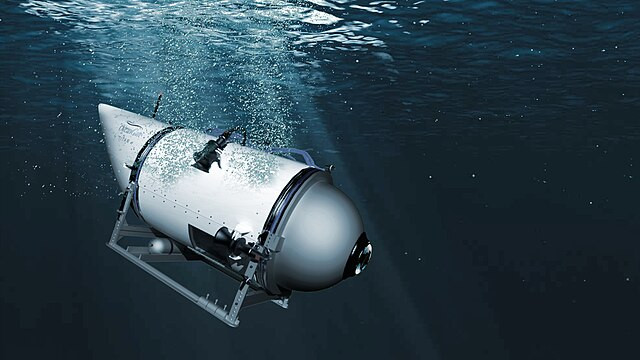A U.S. Coast Guard investigatory hearing into the tragic implosion of the Titan submersible began on Monday, shedding new light on the catastrophic failure that claimed the lives of all five passengers during a deep-sea expedition to view the Titanic wreckage. The hearing, which is taking place in North Charleston, South Carolina, revealed critical details, including the submersible's final message and extensive concerns over its safety standards, which had been raised long before the ill-fated voyage.
The Titan, a 23,000-pound vessel operated by OceanGate, suffered more than 100 equipment issues in the two years leading up to the June 2023 disaster, according to testimony provided by Tony Nissen, a former engineering director at the company. Nissen, who was fired from OceanGate in 2019 after refusing to approve an expedition due to concerns over the submersible's integrity, disclosed that the Titan's carbon fiber hull had been compromised after being struck by lightning in 2018, and that a subsequent crack rendered the hull unsafe.
"I wouldn't sign off on it," Nissen testified, stating that he was terminated for his stance. He described a deteriorating relationship with OceanGate CEO Stockton Rush, who he claimed prioritized expeditions over safety. "He would fight for what he wanted and he wouldn't give an inch," Nissen said, emphasizing that their disagreements were kept behind closed doors to avoid alarming the engineering team.
Nissen's concerns were tragically validated when the Titan, on a dive to the Titanic wreck site on June 18, 2023, lost contact with its support ship, the Polar Prince, nearly two hours into its descent. The submersible sent its final message just six seconds before communication was lost, indicating an attempt to jettison weights in a bid to abort the dive and return to the surface. Moments later, the Titan was "pinged" for the last time, before it suffered a catastrophic implosion due to the immense pressure at a depth of approximately 13,000 feet.
The wreckage of the Titan was discovered days later on the ocean floor, not far from the Titanic itself. The disaster claimed the lives of all on board: Stockton Rush, the French diver Paul-Henri Nargeolet, British businessman Hamish Harding, Pakistani businessman Shahzada Dawood, and his 19-year-old son, Suleman Dawood, who had hoped to set a world record by solving a Rubik's Cube at the wreck site.
The ongoing hearing, convened by the Marine Board of Investigation (MBI), represents the highest level of inquiry by the U.S. Coast Guard. Its objective is to uncover the facts surrounding the incident and provide safety recommendations to prevent similar tragedies in the future. The board is also tasked with identifying any potential negligence or misconduct, which could lead to criminal referrals to the Department of Justice.
Jason Neubauer, chairman of the MBI, highlighted the importance of this hearing, stating, "Our mission is to ensure that no family will experience such a loss again." Neubauer noted that the investigation has involved close coordination with multiple federal agencies, international partners, and industry experts over the past 15 months.
The hearing's opening day also saw participation from lawyers representing OceanGate, who were allowed to question witnesses. However, they chose not to cross-examine Nissen. In a statement, OceanGate expressed condolences to the families of the victims, with attorney Jane Shvets stating, "We hope that this hearing will help shed light on the cause of the tragedy and prevent anything like this from happening again."
The investigation has also raised questions about OceanGate's operational practices. Testimonies from former employees, including Nissen and others scheduled to appear, suggest that safety concerns were often overridden in favor of expeditions. David Lochridge, another former employee who was dismissed after raising alarms about the Titan's carbon fiber hull, is expected to testify in the coming days.
OceanGate, which once advertised the Titan as a "safe and comfortable vessel" on its website, has since suspended all exploration and commercial operations. The hearing, which is expected to last nine days, will continue to probe the events leading up to the implosion and examine whether proper safety protocols were followed.




